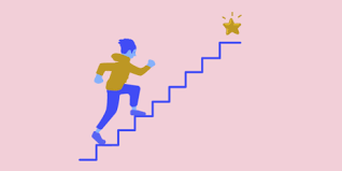
The issue of motivation can be tricky. Although extrinsic (or external) motivation, in the form of incentives and rewards, can be helpful in the short-term, ultimately we want the motivation for practice to come from within our students. We want our students to practice because they love music and enjoy playing the piano.
Does this sound like an unrealistic goal? In researching the subject of intrinsic (or internal) motivation, I discovered an interesting article on self-determination theory, the psychological theory that explains the emotional needs that must be fulfilled in order for us to be self-motivated to continue an activity. Psychologists theorize that self-motivation to continue any activity, whether it is following an exercise plan or sticking to a new hobby, boils down to three main emotional needs that must be fulfilled. These three emotional needs are:
1. Autonomy: feeling in control, having choices
2. Competency: feeling successful, making progress
3. Relatedness: feeling a connection to the outside world, having a sense of community
By helping our students to fulfill these three basic psychological needs, we can help them to become self-motivated and increase their enjoyment in practicing piano.
So, how can we help our students to fulfill their needs for autonomy, competency, and relatedness in our piano lessons? Here are my thoughts:
Autonomy:
- Give students choices within each lesson. From choosing what piece to play first in the lesson, to creating their own practice plan for the week--choices help students to feel in control of the learning process.
- Encourage students to keep a "wish list" of pieces they would like to learn to play. Having a choice in the repertoire that they learn can be extremely motivating for students.
- Help students to set their own long-term goals for piano study. Every student's musical journey is different, and every student has different interests. Let students know that their goals are important and that you value their input as you develop their curriculum together.
Competency:
- Help students feel successful at every lesson by providing activities that are geared towards each student's strengths--not just those that challenge their weaknesses. This may mean including aural or rote activities for students that struggle with note reading, for example.
- Make sure that assignments are clear and easy to follow at home, so that students can see progress at every practice session.
- Give students "easy wins"--pieces that they can learn quickly and independently.
Relatedness:
- Encourage students to play familiar pieces, such as the theme from a favorite movie or video game, or a parent's favorite classical piece. It can be exciting (and motivating) to play a piece that your friends and family instantly recognize.
- Create social opportunities for your students within your studio, such as informal group classes or partnering students to play duets.
- Encourage students to make music with their friends. This can include accompanying friends that play other instruments, joining a band at school or church, or just jamming along to a chord chart with a friend who plays guitar.
- Finally, arm your students with the musicianship skills they need for a lifetime of music-making with others. Sight-reading, lead sheet and chord chart playing, knowing how to improvise on a familiar tune by ear--these are all practical musicianship skills that will help your students be ready to make music with others anytime, anywhere.
What do you think? How do you motivate your students? What are your thoughts on intrinsic and extrinsic motivation? I'd love to hear from you in the comments!

 RSS Feed
RSS Feed